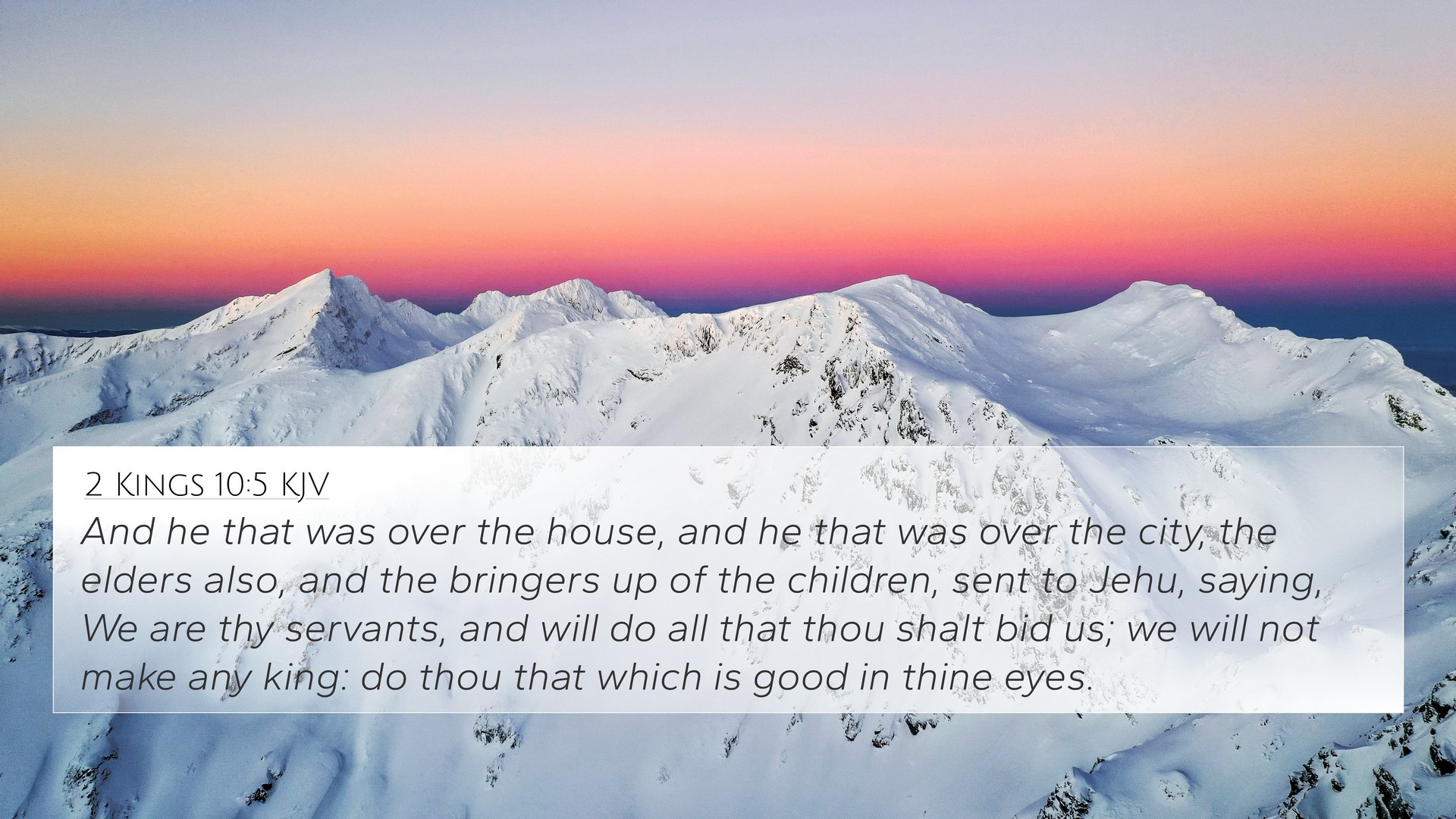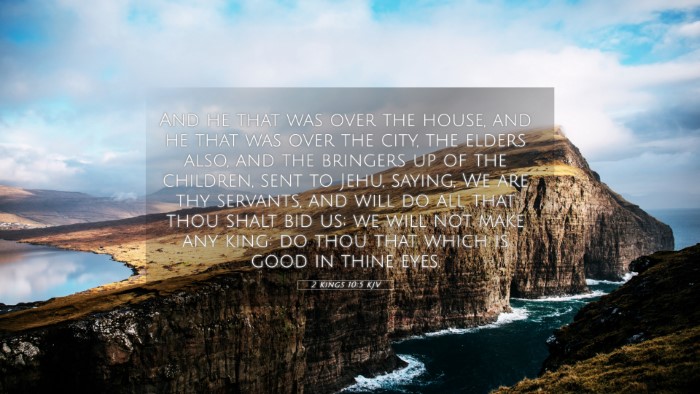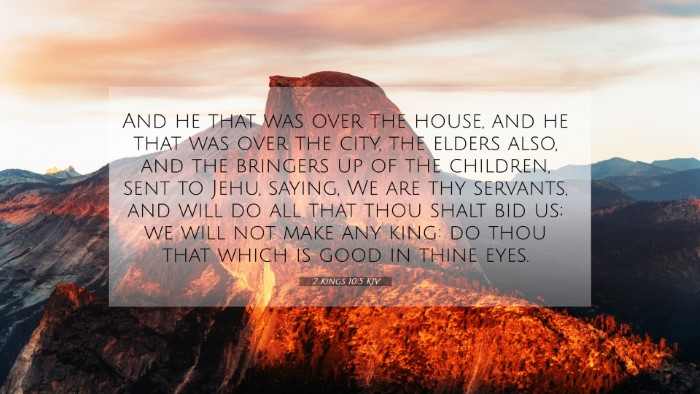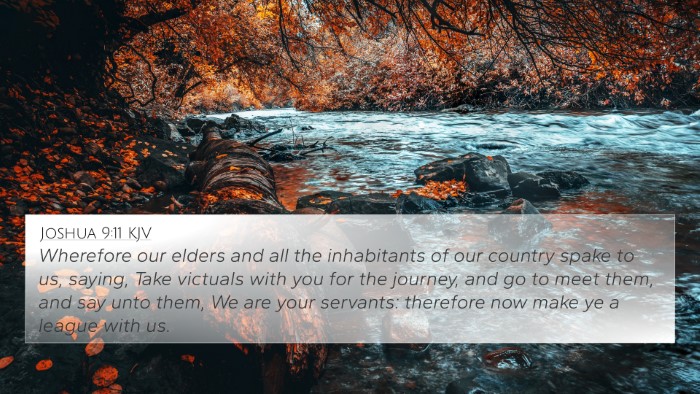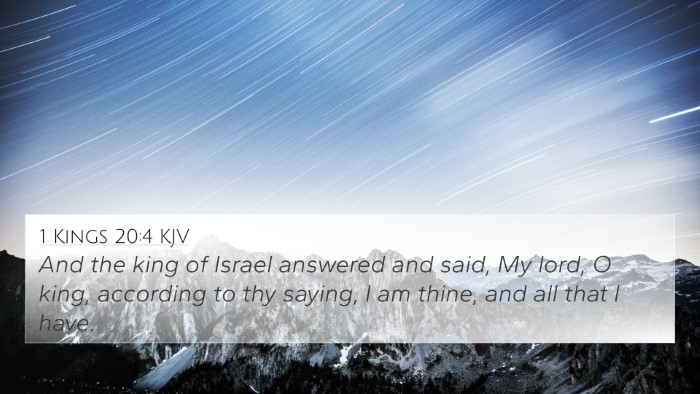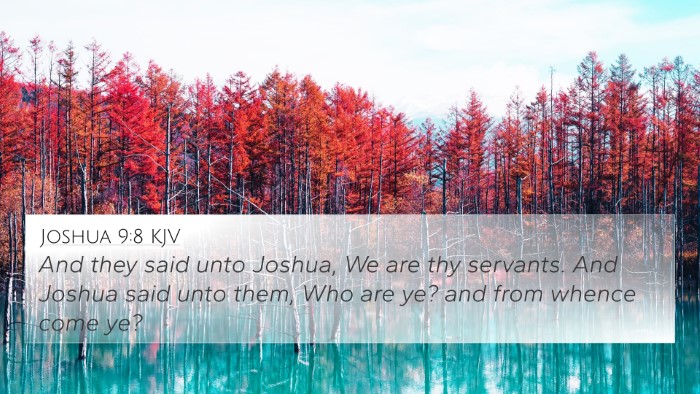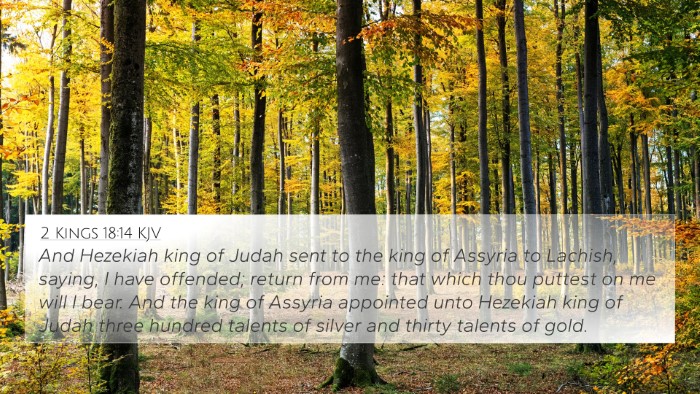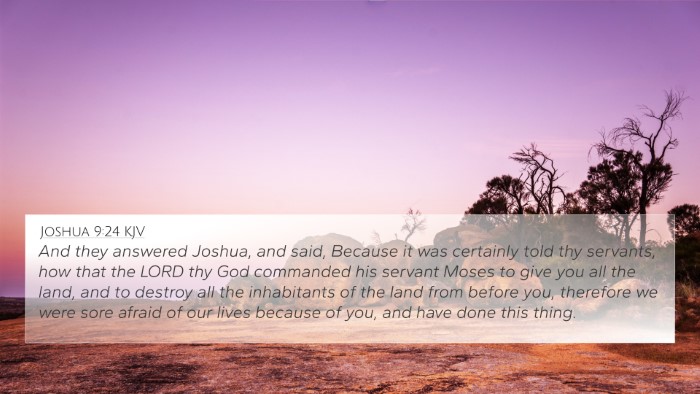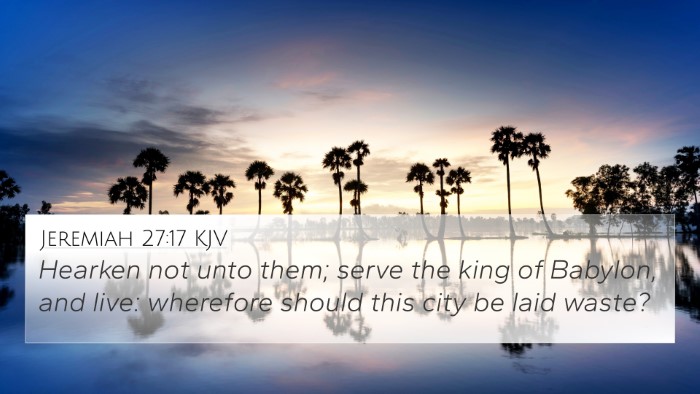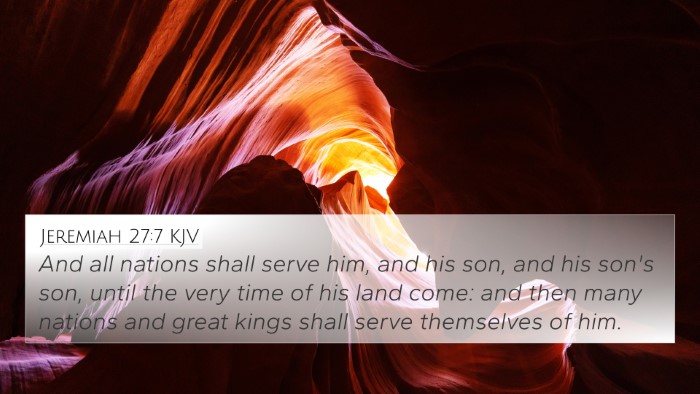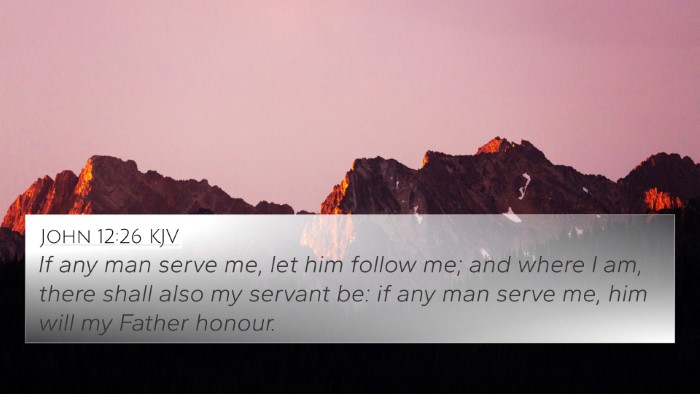Understanding 2 Kings 10:5
Verse: 2 Kings 10:5 - "And he that was over the house, and he that was over the city, the elders also, and the bringers up of the children sent to Jehu, saying, We are thy servants; and all that thou shalt bid us we will do; we will not make any king: do thou that which is good in thine eyes."
Summary of Meaning
The verse at hand highlights the political maneuvering following the death of King Ahab and the subsequent rise of Jehu as king of Israel. The text reflects the submission of the leaders of Israel to Jehu's authority and their readiness to follow his directives, emphasizing their desire for stability after a tumultuous period.
Insights from Commentaries
-
Matthew Henry:
Henry elaborates on the responsiveness of the elders and leaders, viewing it as a mutual recognition of new leadership. Their pledge to Jehu signals a strategic alignment with a new ruler who promises change.
-
Albert Barnes:
Barnes indicates the practical nature of these leaders’ approach. They acknowledge Jehu's military success and see him as a means to retrieve the nation from chaos. This submission also reflects the delicate balance of power in ancient Israel.
-
Adam Clarke:
Clarke emphasizes the leaders’ desire to secure their positions and avoid any backlash. By aligning with Jehu, they ensure their own safety as he consolidates power, which speaks to the interplay of loyalty and self-preservation in political contexts.
Cross-References to Explore
To deepen the understanding of 2 Kings 10:5, we can explore several related Bible verses:
- 1 Kings 19:16: Anointing of Jehu as king, showcasing divine selection.
- 2 Kings 9:1-3: Elisha's command to anoint Jehu relates to his rise to power.
- 2 Kings 9:12-14: Jehu’s actions after being anointed reflect the fulfillment of prophecy.
- 2 Kings 11:4-12: Events surrounding the kingship of Athaliah contrast with Jehu’s ascent.
- 2 Kings 10:30: God's acknowledgment of Jehu’s zeal in purging Baal worship.
- 2 Chronicles 22:7: References the divine purpose in Jehu's actions.
- Jeremiah 22:11: Illustrates the consequences of kingship and its divine oversight.
Thematic Connections
This verse connects with themes of authority, leadership, and divine will. The readiness of the leaders to follow Jehu can be seen as a recognition of God's sovereignty in choosing His servants to lead His people.
Connections & Analysis
By examining 2 Kings 10:5 alongside related verses, we can derive powerful lessons about God's guidance through leadership transitions.
- Finding Cross-References: Utilizing a Bible concordance can greatly aid in identifying connections. For example, looking up 'Jehu' will yield various passages that round out his character.
- Identifying Themes: Exploring themes of divine justice and the consequences of idolatry in parallel verses helps establish a broader context of God's actions in history.
- Tools for Bible Cross-Referencing: Employing 'cross-reference Bible study' materials can enrich one’s understanding of how often themes of authority are echoed across scriptures.
Conclusion
The examination of 2 Kings 10:5 reveals not only a pivotal moment in Israel's history but also invites readers to explore the interconnectedness of Biblical narratives. By utilizing cross-referencing tools and techniques, individuals can delve deeply into the profound truths and themes embedded within scripture.
